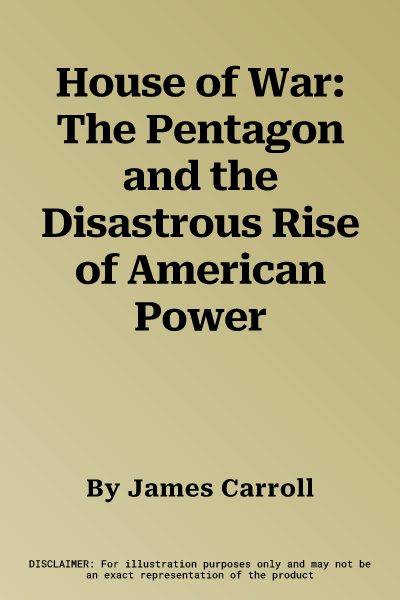"A masterful achievement...[Carroll's] prose is elegant, his
viewpoint bold." --Howard Zinn, author of The People's History of the
United States
"One cannot understand the impact of the Pentagon on US foreign
policy. . . without reading James Carroll's House of War." --Lawrence
Korb, former Undersecretary of Defence under Ronald Reagan
From the National Book Award-winning author of An American Requiem
and Constantine's Sword comes a sweeping yet intimate look at the
Pentagon and its vast--often hidden--impact on America.
This landmark, myth-shattering work chronicles the most powerful
institution in America, the people who created it, and the pathologies
it has spawned. James Carroll proves a controversial thesis: the
Pentagon has, since its founding, operated beyond the control of any
force in government or society. It is the biggest, loosest cannon in
American history, and no institution has changed this country more. To
argue his case, he marshals a trove of often chilling evidence. He
recounts how "the Building" and its denizens achieved what Eisenhower
called "a disastrous rise of misplaced power"--from the unprecedented
aerial bombing of Germany and Japan during World War II to the "shock
and awe" of Iraq. He charts the colossal U.S. nuclear buildup, which far
outpaced that of the USSR, and has outlived it. He reveals how
consistently the Building has found new enemies just as old threats--and
funding--evaporate. He demonstrates how Pentagon policy brought about
U.S. indifference to an epidemic of genocide during the 1990s. And he
shows how the forces that attacked the Pentagon on 9/11 were set in
motion exactly sixty years earlier, on September 11, 1941, when ground
was broken for the house of war.
Carroll draws on rich personal experience (his father was a top Pentagon
official for more than twenty years) as well as exhaustive research and
dozens of extensive interviews with Washington insiders. The result is a
grand yet intimate work of history, unashamedly polemical and personal
but unerringly factual. With a breadth and focus that no other book
could muster, it explains what America has become over the past sixty
years.

